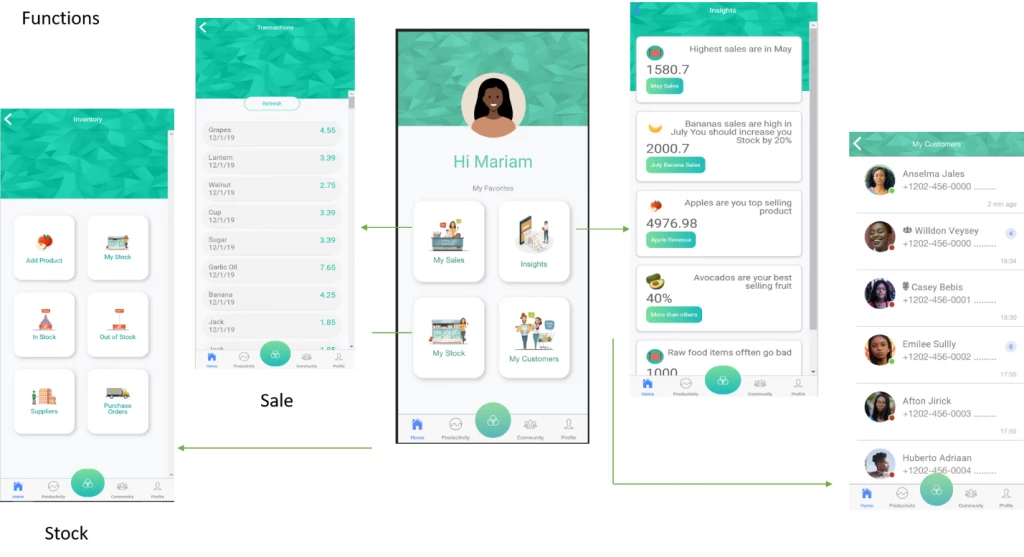
The COVID-19 pandemic introduced a major demand shock for businesses worldwide, particularly micro, small, and medium-sized enterprises (MSMEs). MSMEs are among the strongest drivers of economic development, innovation, and employment but tend to have smaller operating margins, making them vulnerable to shocks. In Ethiopia, where opportunities for women entrepreneurs lag far behind those for men, women-owned or led MSMEs have been hard hit. This much is apparent in the Ethiopia Women Entrepreneurship Development Project (WEDP) – an IDA operation supporting over 38,000 growth-oriented women-owned micro and small enterprises with business training and access to loans.
Since WEDP’s inception in 2012, participating businesses have grown their incomes by 67% and employment in their firms has increased by 58%. WEDP businesses employ almost 90,000 workers of which 61% are female. However, most WEDP firms are consumer-facing businesses such as grocery and clothing shops, cafés/restaurants, and beauty salons. As the pandemic has unfolded, their demand has dropped dramatically with 94% of firms experiencing a decline in year-on-year sales.
To shore up WEDP businesses and help protect the many jobs at risk, a joint team from the World Bank’s Africa Gender Innovation Lab, the Finance, Competitiveness & Innovation Global Practice, and the ITS Technology and Innovation Lab (ITSTI) came together to understand what types of digital solutions could support women entrepreneurs through the crisis period. From this collaboration was born an innovative idea: a mobile application which could tap into point-of-sale (POS) data for firms and generate business insights as well as transactional records, to help the firms improve operations, maximize profits, and obtain digital credit scores to access emergency loans.
Based on preliminary research and consultations with WEDP entrepreneurs, ITSTI developed a lab prototype for this application, which adapts concepts from what an industry-insider might refer to as ‘enterprise software.’ The prototype takes the emerging technologies and business analytics that a major successful retailer might use in optimizing their sales and operations, and tailors these to support smaller women-owned firms in the retail sector in Ethiopia. The application is envisioned for use on any smartphone, and begins by connecting via WiFi or through a connection cable to the entrepreneurs’ cash register. Ethiopian enterprises earning more than 100,000 ETB (3,000 USD) annually are required to use a cash register, so the tool is widely adoptable.
Once connected, the application will extract transaction data from the cash register to generate insights on sales patterns, customer footfall, and high-value products. The application would then provide targeted recommendations, such as ‘increase stock of bananas by 30% in June’ to help entrepreneurs monitor and optimize their sales and earnings. The application would also permit firms to remotely engage with their customers and business networks—enabling real-time price comparisons and incorporating elements of peer-to-peer interchange and learning, along with access to financial service providers—all of which are critical for helping businesses adapt to social distancing and other health measures.

In collaboration with the Government of Ethiopia’s SME agency, the next step is to introduce the application prototype in user-testing sessions with WEDP entrepreneurs. These sessions will build on earlier consultations with WEDP entrepreneurs to further understand what application features might be most desirable to women retailers. Based on feedback from the focus groups, a full enterprise software application will be developed and rolled out in the WEDP operation over the coming months. Partnerships are underway with Ethiopian banks and microfinance institutions, since the application will create a digital record of the firm’s transactions which can be leveraged as an alternative means of credit scoring for women-owned firms who need bridging capital to sustain or expand operations through the crisis.
The development of an enterprise software application for MSMEs in Ethiopia is illustrative of the positive steps the country is taking to promote digital development. Under the new Digital Ethiopia 2025 strategy, the Government of Ethiopia has committed to investing in research and development of emerging technologies, as well as creating an environment for innovation to develop new businesses, services and jobs. These priorities are echoed in a Digital Development Joint Action Plan and Call to Action initiated by the World Bank, the International Telecommunication Union (ITU), GSMA, and the World Economic Forum (WEF) in response to the COVID-19 crisis. Recognizing that digital technologies offer an opportunity for businesses to cope with social distancing, ensure business continuity, and prevent service interruptions, the joint action plan urges new approaches such as leveraging big data and adaptive business models to support crisis-affected businesses. In contribution to this agenda, the World Bank team looks forward to sharing insights and lessons for designing and deploying digital solutions in partnership with public and private sector players to support women-owned businesses.
The World Bank ITS Technology and Innovation Lab provided valuable contributions to this blog. To learn more about their work reach out to: technologyinnovation@worldbankgroup.org.





Join the Conversation